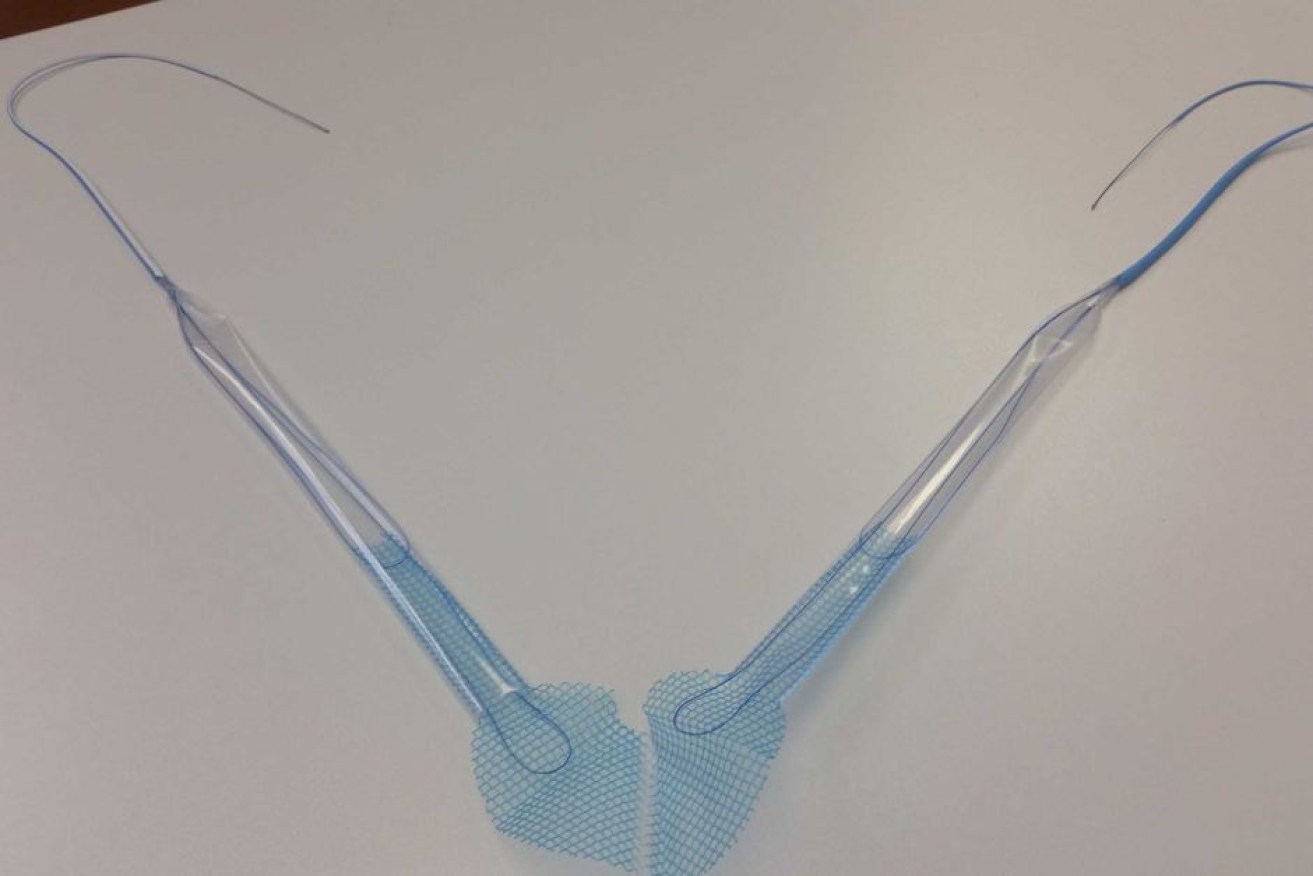National apology for ‘historic agony and pain’ of pelvic mesh implants

The federal government will respond to a senate Senate inquiry into the medical scandal. Photo: Getty
Thousands of Australian women whose lives have been ruined by vaginal mesh implants have received an apology from the federal government.
Health Minister Greg Hunt on Wednesday acknowledged the pain and suffering of those caught up in what turned out to be a global medical scandal.
“On behalf of the Australian government, I say sorry to all of those women with the historic agony and pain that has come from mesh implantation which have led to horrific outcomes,” he told the ABC on Wednesday.
“My message to them is your voice has been heard, and not just heard but acted upon.”
Vaginal mesh implants have been given to about 8000 Australian women since the 1990s to treat pelvic floor damage.
Many were treated for stress incontinence and prolapse, often after giving birth, resulting in chronic and debilitating pain and the inability to have sex.
The federal government has tabled its response to a Senate inquiry, which heard horror stories from women who had the implants.
It supports, or supports in principle, 12 out of 13 committee recommendations, which included mandatory reporting of adverse effects on women, more information about the risks of implants and better training for doctors and surgeons.
The government’s central response is to work with the states and territories to set up a voluntary national register of mesh recipients recording the issues they experienced.
“I would like to see it set up by the end of 2019, if not the middle of the year,” Mr Hunt said.
Patient lobby groups want to make it compulsory for health practitioners to report side-effects of implantable devices.

“Too many women have suffered … for too long,” Health Minister Greg Hunt says. Photo: AAP
While the federal government supports this, it cannot act because it would be outside its powers.
“We will encourage the states and territories to adopt mandatory standards,” Mr Hunt said.
The federal government has also established Medicare benefit payments for the removal of pelvic mesh implants and related treatments.
Medicare items have also been changed to restrict the use of the mesh in surgeries for pelvic organ prolapse.
The states and territories are being asked to conduct an audit of the devices.
“I would be surprised if any state or territory resisted the steps that we have taken,” Mr Hunt said.
“Too many women have suffered too much for too long.”
But the federal government did not support a recommendation to retrospectively audit pelvic mesh procedures, citing policy and implementation issues.
Labor said the important thing now is that the scandal is not repeated and those women who suffered are supported.
“Many women will however continue to deal with the health consequences of their mesh implant for the remainder of their lives,” opposition health spokeswoman Catherine King said.








